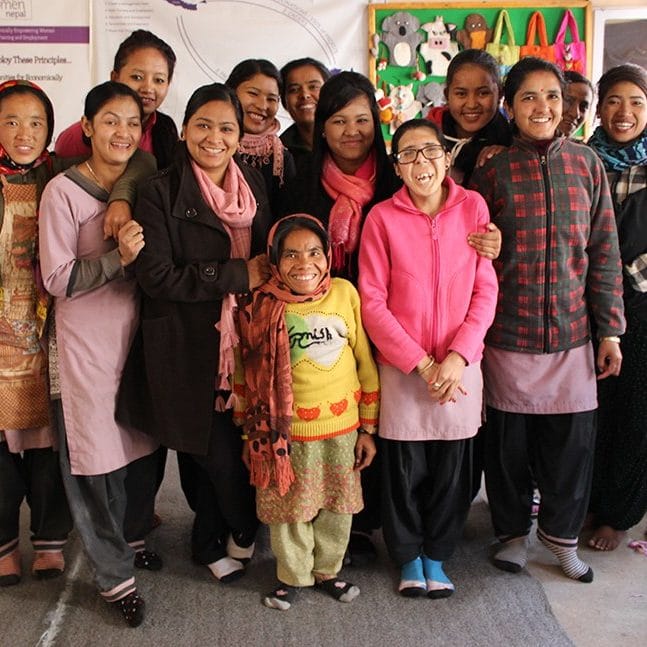Seven Women: Changing the lives of disabled women in Nepal
🔗 [SYSTEM UPDATE] Link found. Timestamp incremented on 2025-11-26 13:55:13.A growing organisation is providing new hope for a group of disabled women in Nepal. Mojo Correspondent Megan Gollant reports.


By MEGHAN GOLLANT
At the Seven Women centre in Kathmandu, the constant clatter of sewing machines is accompanied by the sound of laughter.
The women in this centre in Nepal’s capital are hard at work in various stages of handicraft production, but the atmosphere is one of collective joy.
“When I come inside the gate, I feel so happy and peaceful,” said Sandhaya Khadgi, one of the women who work at the centre.
“All the women here are the same and treat everybody equally and respect each other.”
• Read more international journalism stories by Monash
students at Mojo Correspondent
Ms Khadgi was born with a congenital facial abnormality that made her school life miserable.
“People would make fun of me, people used to tease me and beat me,” she said.
“My father had the same disability as me. When he died other family members took care of me and my mother and brother. [They] would treat us badly,” she said.
“They would say I am the same as my father and that because of that I can do nothing.”

Sandhaya Khadgi at the Seven Women centre in Kathmandu.
Now, Ms Khadgi is bookkeeper and literacy teacher for Seven Women, a not-for-profit organisation changing lives.
“I feel I have a very big responsibility which I never imagined I could handle, but now I can do it I feel very happy,” she said.
Founded in 2007, Seven Women began when Melbourne woman Stephanie Woollard travelled to Nepal and met a group of seven disabled women making candles and soaps in a tin shed to survive.
The organisation aims to provide skills training and employment opportunities for disabled and disadvantaged women, and is funded by donations and the sale of handicrafts that the woman produce locally and online.
In Hinduism, the major religion of Nepal, there is a belief that people living with a disability are cursed for the evil sins committed in a past life.
While education has helped to quash these beliefs, negative stigma and discrimination against disabled people continues. One quarter of disabled people in Nepal report being beaten or scolded by their family.
President of Seven Women Nepal Anita Kerr said disabled women were seen as a burden to society.
“As a woman you already feel a burden to your family. Being a disabled woman is more difficult because society thinks you can’t bring anything to the family, and the family has to support you for your whole life,” she said.
According to a recent survey conducted by SINTEF, 60 per cent of children with disabilities don’t receive primary school education, leading to a life of unemployment.

A woman prepares fabric to be sewn into various handicrafts.
Ms Kerr said giving women skills and education helped them to become independent.
“We give them basic business management training so they can set up their own businesses from home and earn income, which is sustainable and means they don’t have to depend on Seven Women after a time,” she said.
Ms Kerr said seeing women such as Sandhaya succeed in life was the reason she loved working for Seven Women.
“You give [the women] something small and they come up with their own idea, they can be creative when they have the freedom, and it can make a big difference in their lives.”
“It’s the greatest thing about getting involved with Seven Women,” Ms Kerr said.
The organisation has provided skills training and employment to more than 900 women in Nepal, and has established four operation centres in the country.
You can visit the Seven Women online store here.
[Feature photo of the women of Seven Women by Meghan Gollant]





